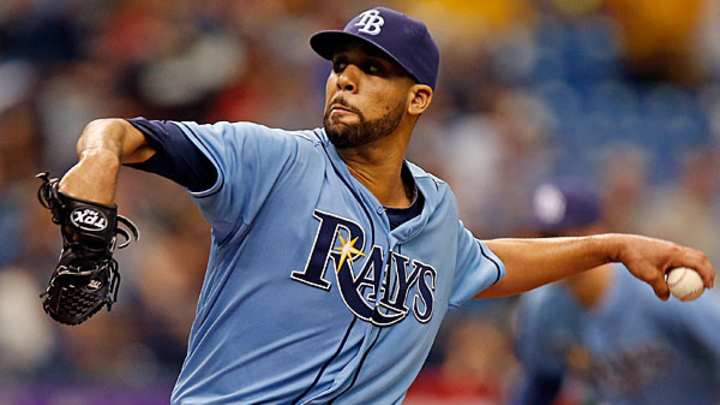Price avoids arbitration with Rays but may still be priceless on the trade market

David Price will be a hot topic of trade discussions this year. (J. Meric/Getty Images)

It's not the $215 million contract Clayton Kershaw reeled in from the Dodgers on Wednesday, but David Price's new $14 million, one-year deal with the Rays is still a hefty contract for a pitcher who still has one more arbitration-eligible season remaining after this one. In fact, it's the highest single-season salary in franchise history (Evan Longoria won't crack $14 million under his current, team-friendly contract until 2019).
It's not, however, an unexpected figure. Having won the American League Cy Young award in 2012, Price made $10.1125 million last year, a 132 percent increase over his 2012 salary and a record for a pitcher in his second year of arbitration. By comparison, Price's new $14 million deal is a mere 38 percent increase over his previous one, coming as it does after a season in which he spent a month and a half on the disabled list with a triceps strain in his pitching arm and posted comparatively pedestrian triple crown numbers (10-8, 151 strikeouts, 3.33 ERA) compared to his award-winning season of the year before (20-5, 205 Ks, league-best 2.56 ERA). Of course, if you dig deeper, you see that, in 2013, Price led the AL in strikeout-to-walk ratio (5.59), walk rate (1.3 per nine innings) and complete games (4), one of those being his dominant outing in the one-game wild card tiebreaker against the Rangers that put Tampa Bay in the postseason.
Price, a 28-year-old lefty, has had an extra year of arbitration by virtue of his having been a Super Two player prior to the 2012 season, which is one reason that his salary is so high with a year of arbitration still to go in 2015. That, in turn, is a large part of the reason that the Rays have been open about their desire to trade Price now, maximizing the return they can get for their ace. There's a very good chance that Price will be better in 2014 than he was in 2013, which could push his salary for 2015 close to or beyond $20 million. Even if that sort of salary is an inevitability with Price, it would seem to be easier for Tampa Bay to trade him now -- with two team-controlled, if expensive, seasons remaining and what remains a bargain salary for a pitcher of his ability and track record -- than it would after this season, when the team acquiring him will only be guaranteed one season at something closer to free-agent prices.
